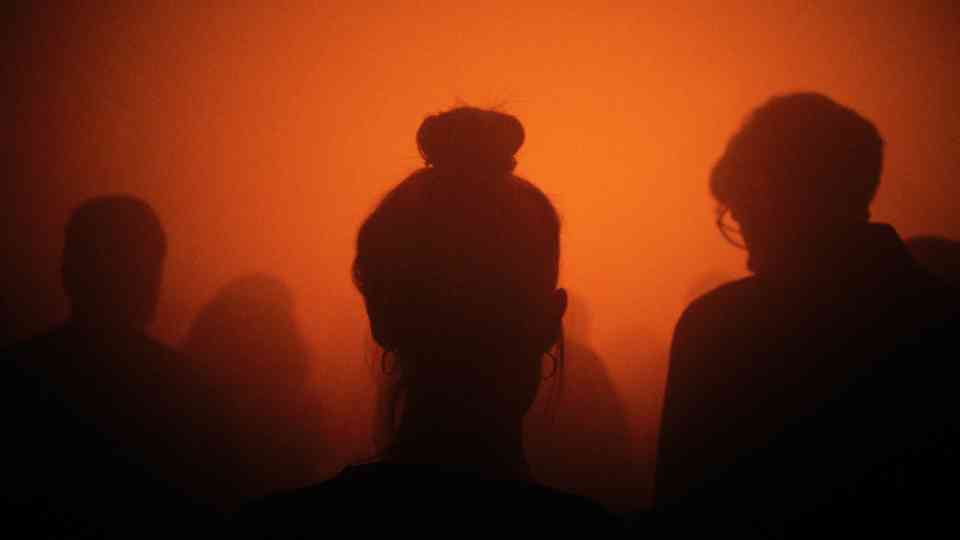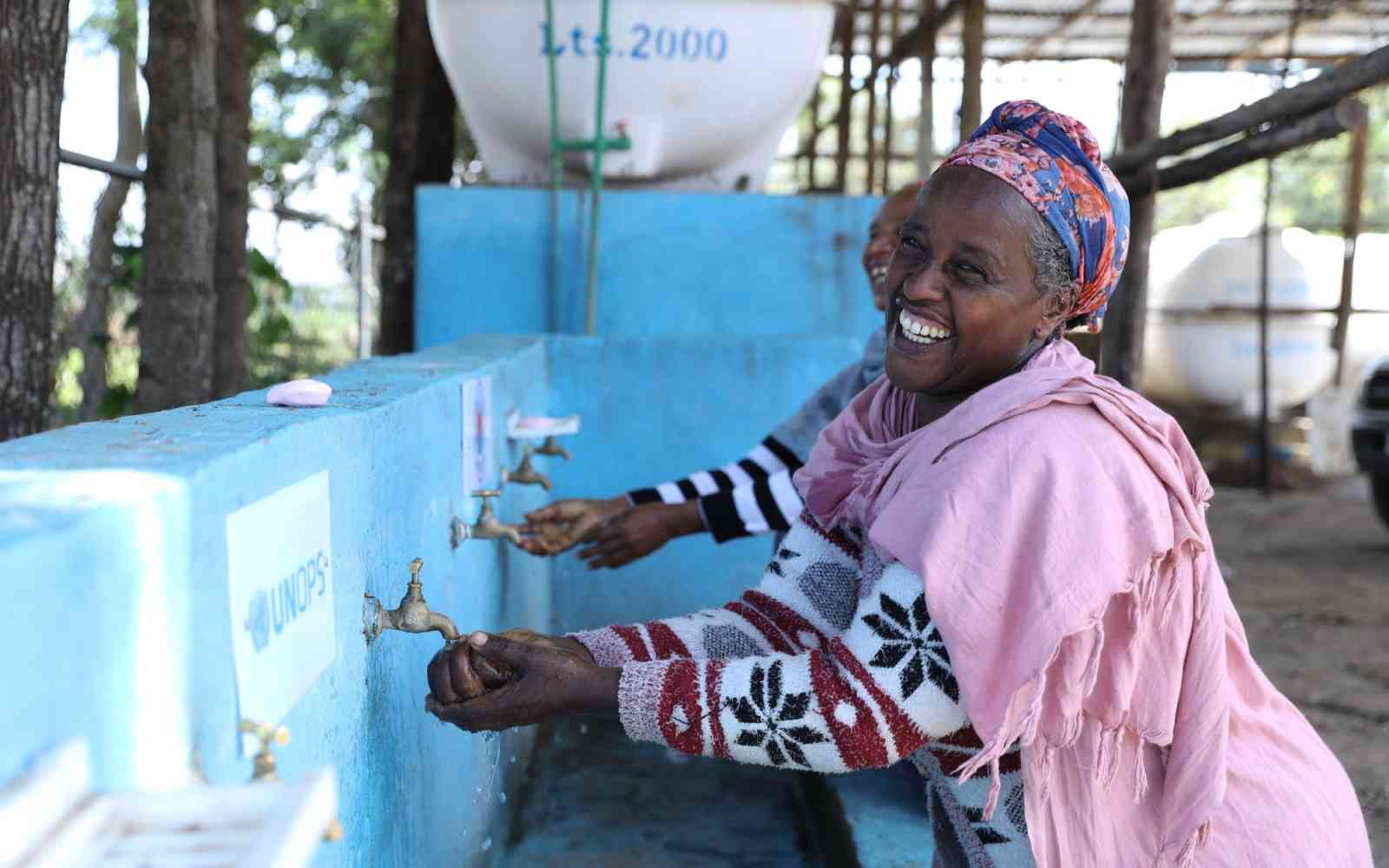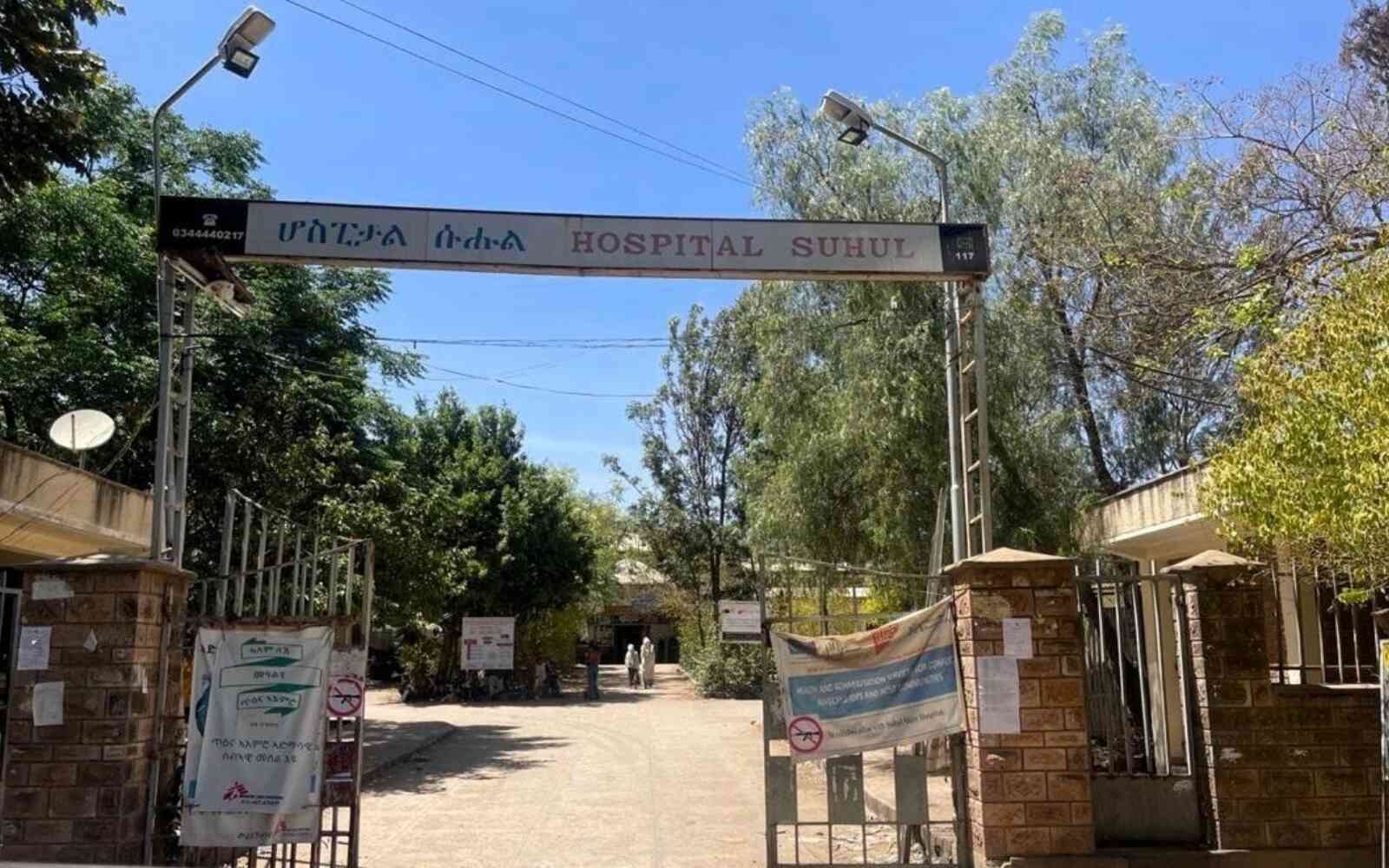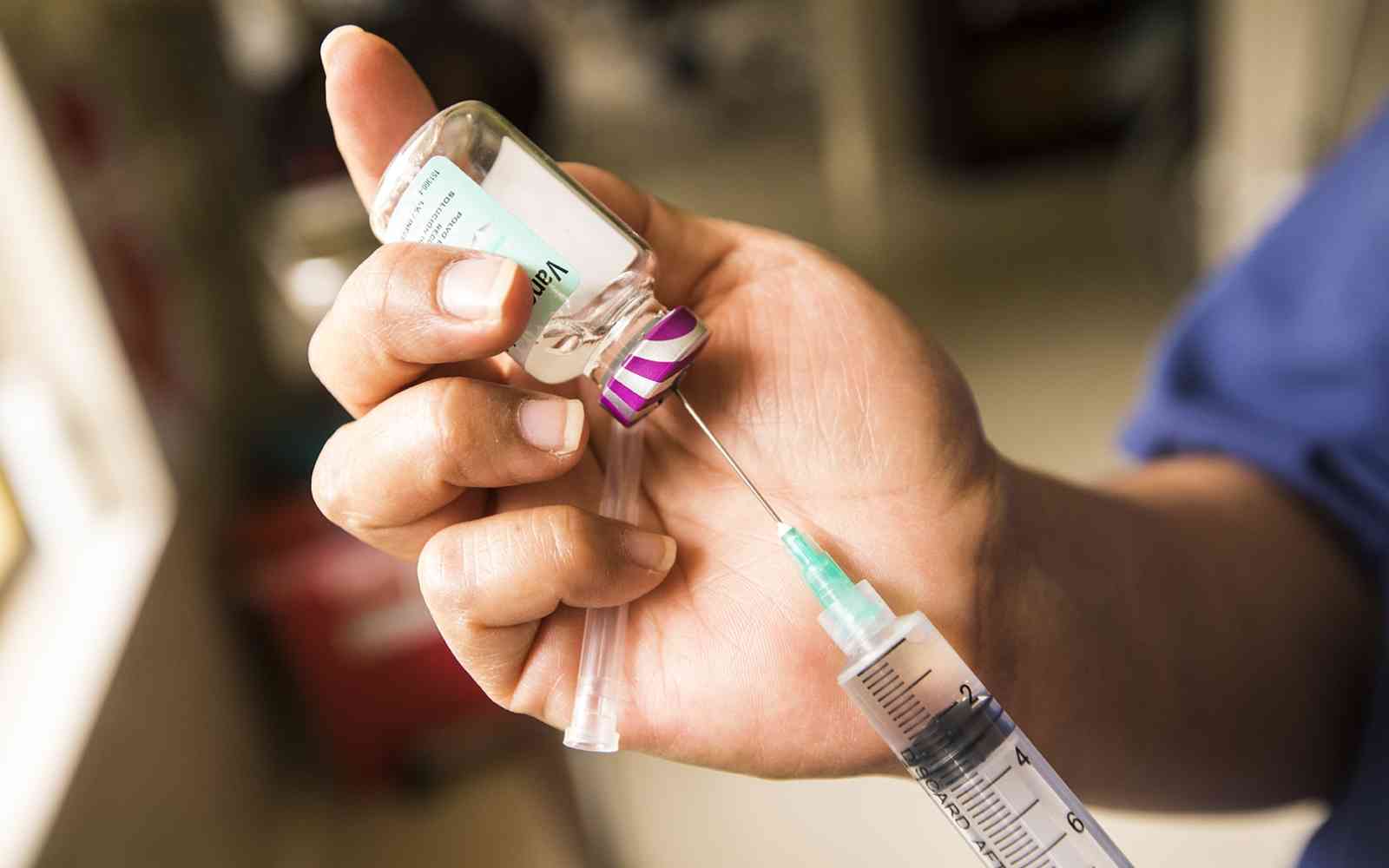The United Nations Office for Project Services (UNOPS)
Rétablir l’accès à des services de base dans le Tigré
Le conflit dans le nord de l’Éthiopie a eu des conséquences dévastatrices sur des millions de personnes et a privé des communautés de certains services de base, notamment dans la région du Tigré.
Cet article a initialement été publié le 15 juin 2023. Certaines informations ont depuis été mises à jour.
Dernières mises à jour :
20 octobre 2025
- La construction de l’école primaire Shewate Hugum dans le woreda d’Abergele, réalisée sur un nouvel emplacement pour des élèves qui n’avaient auparavant pas accès à une école, s’est achevée avec succès et a été officiellement remise aux autorités régionales.
- L’école dispose de deux bâtiments comptant huit salles de classe, chacune pouvant accueillir 50 élèves, ainsi que d’un bâtiment administratif, de trois bâtiments de toilettes hybrides avec fosses septiques, d’un approvisionnement en eau fiable et d’un système électrique complet.
- Les éléments extérieurs, notamment les clôtures du périmètre, les allées et l’aménagement paysager, créent un environnement d’apprentissage sûr et agréable.
- L’école emploiera 25 membres du personnel enseignant ainsi que du personnel administratif.
- La cérémonie d’inauguration de l’école marque l’achèvement des travaux de réhabilitation menés dans le cadre du projet de soutien aux interventions, au relèvement et à la résilience au sein de communautés touchées par le conflit en Éthiopie.
- En savoir plus (en anglais)
15 juillet 2025
- Les écoles primaires de Meswaeti et de Gelewsa dans le woreda d’Endamohoni ont été entièrement réhabilitées et officiellement remises au gouvernement régional.
- Les travaux comprenaient la construction de nouveaux blocs de salles de classe et de bâtiments de toilettes hybrides avec des installations sanitaires modernes, la mise en place de systèmes d’approvisionnement en eau pour soutenir l’hygiène et le fonctionnement quotidien des écoles ainsi que l’installation de systèmes électriques pour améliorer les conditions d’apprentissage. Des travaux ont également été réalisés pour accroître l’accessibilité et la sécurité.
- Les deux écoles peuvent désormais apporter une éducation de qualité à plus de 1700 élèves au total, dont beaucoup n’y avaient auparavant pas accès en raison du conflit.
- Pour en savoir plus, cliquez ici (en anglais).
16 juin 2025
- Le poste de santé de Semret a été entièrement réhabilité. Cet établissement dessert plus de 14 000 patientes et patients grâce à un nouveau département de services ambulatoires qui permet d’élargir l’offre de soins, et dispose maintenant de toilettes accessibles aux personnes à mobilité réduite ainsi que d’un approvisionnement fiable en eau et en électricité.
- En outre, l’école primaire de Serenga a été entièrement remise en état et remise à la communauté.
- Pour en savoir plus, cliquez ici (en anglais).
9 avril 2025
Le centre de santé de Edaga Hibret, dans le woreda d’Asgede, au Tigré, a été réhabilité pour pouvoir accueillir 20 000 patientes et patients.
Les principales améliorations comprennent une nouvelle pharmacie pour améliorer le stockage et la distribution des fournitures médicales, un bâtiment de toilettes hybrides avec une fosse septique et un puits filtrant pour améliorer l’assainissement, un système d’approvisionnement en eau fiable pour améliorer l’hygiène, un système électrique qui permettra d’assurer des services ininterrompus ainsi que divers travaux externes comme l’installation de passerelles et de points d’eau pour créer un environnement sûr et accessible.
L’école primaire de May Hanse, également dans le woreda d’Asgede, a été reconstruite pour offrir un environnement d’apprentissage sûr et confortable à des élèves qui n’avaient auparavant pas accès à l’éducation.
Les améliorations apportées à l’école comprennent deux nouveaux blocs de salles de classe comptant chacun six salles de classe pouvant accueillir jusqu’à 50 élèves, un bâtiment de toilettes hybrides avec des installations sanitaires modernes, un système d’approvisionnement en eau, des systèmes électriques ainsi que des travaux externes comme l’installation de clôtures et des passerelles et l’aménagement paysager. L’UNOPS a également acheté et livré du matériel de classe. L’école accueille aujourd’hui plus de 1900 élèves.
Le centre de santé et l’école primaire ont été officiellement remis au gouvernement régional les 8 et 9 avril 2025.
Pour en savoir plus, cliquez ici (en anglais).
19 décembre 2024
À Hawzen, dans la région du Tigré, les écoles primaires Megab et Mariam Zala ont été reconstruites avec succès, améliorant ainsi les conditions d’enseignement de plus de 1800 écolières et écoliers.
Les travaux comprenaient la création de salles de classe, de passerelles, de points d’eau, de blocs sanitaires hybrides, de systèmes d’assainissement améliorés ainsi que d’installations inclusives et accessibles aux élèves en situation de handicap dans les deux écoles.
Pour en savoir plus, cliquez ici (en anglais).
8 décembre 2024
Nouvellement rénovée, l’école primaire Jijike, à Abergelle, au Tigré, a été remise aux autorités.
L’école dispose maintenant notamment d’un bâtiment administratif rénové, de huit salles de classe rénovées et de systèmes d’assainissement améliorés. Les installations tiennent en outre compte de l’inclusion, notamment de l’accès des personnes handicapées, et elles vont bénéficier à plus de 1500 élèves et 30 enseignantes et enseignants.
Pour en savoir plus, cliquez ici (en anglais).
6 septembre 2024
Un atelier axé sur l’analyse des risques dans le secteur de l’eau, de l’assainissement et de l’hygiène a été organisé dans le cadre du projet en faveur du relèvement et de la résilience de communautés touchées par le conflit en Éthiopie.
L’UNOPS a mis au point un outil qui permet d’évaluer les vulnérabilités des infrastructures existantes et de celles dont la construction est prévue, et qui contribue à identifier les risques liés à des facteurs techniques, environnementaux et socioéconomiques.
L’atelier marque officiellement le début de la mise en œuvre du volet du projet portant sur l’alimentation en eau, l’assainissement et l’hygiène.
Pour en savoir plus, cliquez ici (en anglais).
22 février 2024
La reconstruction de 14 centres de santé, de 11 écoles primaires et de 33 installations communautaires et institutionnelles d’approvisionnement en eau, d’assainissement et d’hygiène a été achevée au Tigré.
Les activités d’intervention d’urgence ont été menées à Abergele, Asgede, Endemahoni, Hawzen et Hintalo.
Le projet est maintenant passé à la phase de relèvement, qui comprendra la reconstruction d’autres installations de santé, d’éducation, d’approvisionnement en eau, d’assainissement et d’hygiène.
Pour en savoir plus, cliquez ici (en anglais).
15 décembre 2023
L’école primaire et le centre de santé de Megab ont été reconstruits après avoir subi des dommages importants en raison du conflit.
Le centre de santé de Megab va pouvoir fournir de meilleurs soins de santé à plus de 18 000 membres de la communauté locale.
L’école primaire de Megab va maintenant offrir un meilleur environnement d’enseignement et d’apprentissage à plus de 30 membres du personnel et plus de 900 élèves.
Pour en savoir plus, cliquez ici (en anglais).
30 novembre 2023
Les centres de santé de Jijike et de Gera, dans le district d’Abergele, ont été reconstruits après avoir subi des dommages importants en raison du conflit, et ils ont été remis aux autorités locales.
L’entrée du centre de santé de Jijike compte maintenant une rampe pour faciliter l’accès des personnes présentant des handicaps physiques.
Le centre de santé de Gera comprend également un nouveau bloc sanitaire pour améliorer les conditions d’hygiène.
Ensemble, ces centres fourniront des services de santé à plus de 22 000 personnes.
Pour en savoir plus, cliquez ici (en anglais).
23 octobre 2023
L’école primaire May Hayde et le poste de santé Ara Asegede à Hintalo, qui avaient subi d’importants dommages, ont été reconstruits et remis à la population.
Le poste de santé Ara Asegede, qui dessert 25 00 personnes, dispose désormais de meilleures installations sanitaires.
La réhabilitation de cinq bâtiments contenant des salles de classe ainsi que du bâtiment administratif de l’école primaire May Hayde améliore le cadre d’apprentissage des élèves. L’école a en outre été équipée de 200 nouveaux bureaux et de 16 tableaux.
Pour en savoir plus, cliquez ici (en anglais).
15 septembre 2023
La reconstruction de l’école primaire et du centre de santé de Dongolat s’est officiellement terminée, ce qui permet à plus de 600 élèves d’étudier dans de meilleures conditions et à plus de 15 000 personnes d’accéder à de meilleurs soins de santé.
Le projet a également fourni une somme de près de 10 000 dollars permettant de verser des allocations au personnel enseignant pendant quatre mois, en vue de faciliter leur retour en classe.
Des rampes ont été installées dans l’école et le centre de santé pour faciliter l’accès des personnes handicapées à ces bâtiments.
Dans le cadre du processus de reconstruction des deux établissements, des matériaux locaux ont été utilisés, et des possibilités d’emploi ont été créées pour plus de 100 membres de la communauté.
Pour en savoir plus, cliquez ici (en anglais).
17 août 2023
Le quotidien de millions d’Éthiopiennes et d’Éthiopiens a été bouleversé par les combats dans le nord du pays. Les services d’éducation ont eux aussi été gravement touchés : des écoles, meubles, livres scolaires et équipements de laboratoire ont été détruits, et l’éducation de nombreux enfants est donc interrompue.
À ce jour, l’UNOPS a acheté 3000 bureaux et 240 tableaux pour 15 écoles primaires du Tigré.
Depuis novembre 2020, le conflit a endommagé ou détruit des infrastructures d’alimentation en eau, empêchant de nombreuses personnes d’accéder à une eau propre. Les services d'éducation ont eux aussi été gravement touchés : des écoles, meubles, livres scolaires et équipements de laboratoire ont été détruits, et l’éducation de nombreux enfants est donc interrompue. De plus, le conflit a fragilisé et détérioré les services de santé, ce qui exacerbe le niveau de vulnérabilité des communautés.
Pour le compte du gouvernement de l’Éthiopie, l’UNOPS met en œuvre un projet visant à reconstruire des infrastructures communautaires et à rétablir l’accès à des services de base, suivant une approche qui favorise la résilience face aux changements climatiques, dans le cadre d’un projet plus vaste mis en œuvre grâce à des fonds de la Banque mondiale et portant sur le relèvement et la résilience de communautés touchées par le conflit en Éthiopie.
L’UNOPS travaille avec des comités locaux de voisinage afin de réhabiliter des infrastructures et d’améliorer l’accès à des services tels que l’alimentation en eau, l’assainissement, les soins de santé et l’éducation, en vue d’améliorer les conditions de vie de plus de 365 000 personnes dans cinq woredas (districts) touchés par le conflit.
Ce projet va contribuer à la reprise de services sociaux essentiels dans des woredas touchés par le conflit au Tigré. »
Les comités, qui rassemblent des membres variés des différentes communautés, notamment des femmes et des personnes âgées, mettent en lumière les besoins de chaque communauté et font en sorte qu’ils soient pris en compte dans la mise en œuvre du projet.
Depuis le lancement du projet, douze écoles primaires et douze centres de santé ont été réhabilités. Plus de 400 membres du personnel de santé ont reçu des allocations, ce qui a permis aux centres de santé de rouvrir leurs portes pour servir les communautés. Des allocations ont aussi été versées à plus de 400 enseignantes et enseignants, et plus de 10 000 enfants ont ainsi pu retourner en classe.
En outre, le projet réhabilite des infrastructures d’alimentation en eau et d’assainissement qui avaient été endommagées, notamment des canalisations et des réservoirs. Des points d’eau, de nouvelles canalisations et des infrastructures de production d’énergie solaire vont également être construits.


















